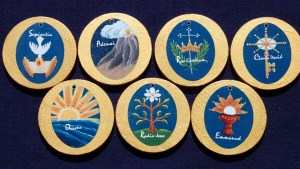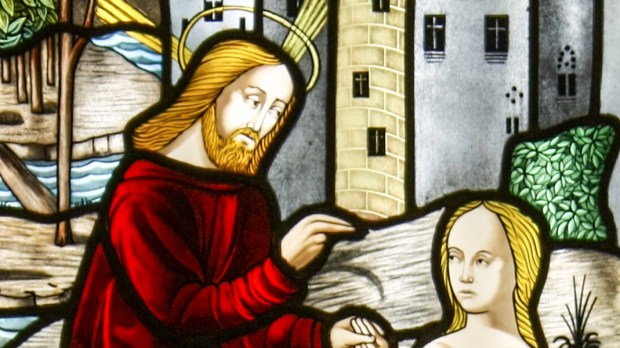O Rex Gentium, et desideratus earum,lapisque angularis, qui facis utraque unum:veni, et salva hominem,quem de limo formasti.O King of the nations, and their desire,the cornerstone making both one:Come and save the human race,which you fashioned from clay.
The penultimate O Antiphon reveals yet another title given to the coming Christ. And in the divine revelation of the O Antiphon we learn something about ourselves. The last two lines of this chant call to mind the creation story in the book of Genesis. “The Lord God formed man of dust from the ground, and breathed into his nostrils the breath of life; and man became a living being” (Gen. 2:7). From the dust or clay of the earth, our Lord has formed us for a particular purpose, namely, to share in the life of the Triune God, to reign with Christ, the King of the nations.

Read more:
The Great O Antiphons, an Advent tradition
Within each and every person is the desire for God. There is no escaping this reality; it is simply part and parcel of being a human person. And because we are made for God, God has created in such a way that we are able to know and to love him. This is precisely how we image God as Genesis teaches us (cf. Gen. 1:27).
Sin, both original sin and our own personal sin, destroys this relationship with God. Through our sinful choices we exclude ourselves from the divine life for which we are created. Yet, in his great love, God sent his Son to redeem us, to rekindle that relationship with God, and open the doors to eternal life. His dominion over sin is complete and total, and the power and love of his reign is on offer for all people, to fulfill the desire of each and every person. “For unto us a child is born, to us a son is given; and the government will be upon his shoulder, and his name will be called ‘Wonderful Counselor, Mighty God, Everlasting Father, Prince of Peace’” (Is. 9:6).
“O King of the nations!” the Church clamors today. Come to us and rekindle what was destroyed by sin. Give us the grace to love you above all things, and, as Christ teaches, give us the grace to love our neighbors as ourselves (Mt. 22:37-40). In his Christmas homily in 450, St. Leo the Great reminds us:
Indeed, the broad scope of Christian grace has given us greater reasons for loving our neighbor. It extends to every part of the whole earth, depairing of no one and teaching that no one must be left out.
Christ is the King of the nations, of each person. And his grace is on offer for each person. This, of course, is something that we learn from revelation, from the prophets and from the mouth of Christ himself, but it is also something we can recognize in our hearts, in the desires that we have to be perfectly happy, fulfilled, and whole. O King of the nations, come and save the human race!

